- Home
- Lisa Kleypas
Midnight Angel
Midnight Angel Read online
LISA
KLEYPAS
Midnight
Angel
To Jennifer Gold,
a wonderful friend!
Thanks for the visit to Russia.
CONTENTS
Prologue
Chapter One:
Alicia, Lady Ashbourne wrung her hands…
Chapter Two:
The servants' hall was filled with conversation…
Chapter Three:
The pile of books dropped from Tasia's hands…
Chapter Four:
Tasia shrank back against the wall. Murmurs…
Chapter Five:
With the weekend party concluded, the last…
Chapter Six:
Tasia clamped her mouth shut, while rage…
Chapter Seven:
Tasia saw very little of Luke for the next few…
Chapter Eight:
They didn't exchange a word at supper…
Chapter Nine:
Nikolas was waiting by the bed when Tasia…
Chapter Ten:
As soon as the anchors were let go from the…
Chapter Eleven:
Tasia's eyes flew open, and she blinked at the…
Chapter Twelve:
In the three months since their return to England,…
Epilogue
About the Author
Other Books by Lisa Kleypas
Credits
Copyright
About the Publisher
Prologue
St. Petersburg, Russia
1870
“They say you're a witch.” The guard entered the shadowed cell and closed the door. “They say you can read minds.” A coarse laugh erupted from his throat. “What am I thinking now? Can you tell me?”
Tasia kept her head down, while her muscles went rigid. It was the worst part of her confinement, having to endure the frequent encounters with Rostya Bludov. He was a disgusting lout, swaggering around the prison as if the guard's uniform buttoned over his fat girth could fool anyone into thinking he was someone of consequence. He hadn't dared to touch her—yet—but every day his insolence grew worse.
She felt him staring at her as she sat curled in a straw-stuffed pallet in the corner. She knew the past three months of imprisonment had taken their toll on her. Always naturally slender, she was now painfully thin. Her ivory skin had faded to a stark white that contrasted sharply with her heavy sable hair.
The guard's footsteps came closer. “We'll be alone tonight,” he muttered. “Look at me. See what you've got coming. I'll make your last night something to remember.”
Slowly she turned her head and gazed at him without expression.
There was a grin on Bludov's pitted face. He was fondling the crotch of his ill-made trousers, arousing himself as he stared at her.
Tasia focused on his face. Her unblinking eyes were deep-set and slanted at the corners, the legacy of a Tartar ancestor. They were the cold, pale shade between gray and blue, like the water of the Neva in winter. Some people feared she could steal their souls with her gaze. Russians were superstitious. Everyone from the lowest peasant to the tsar himself treated anything that was out of the ordinary with deep unease.
The guard was no different from the rest of them. His smile died away, and his erection collapsed abruptly. Tasia stared at him until a clammy sweat broke out on his face. Stepping back, Bludov looked at her in horror and crossed himself. “Witch! What they say is true. They should burn you instead of hanging, burn you to ashes.”
“Get out,” she said in a low voice.
Just as he moved to comply, a knock came on the cell door. Tasia heard the voice of her old nursemaid, Varka, asking to be let inside. Tasia's composure nearly cracked. Varka had aged visibly during the ordeal of the past months, and Tasia found it difficult to look into her grief-stricken face without crying.
Pulling his lips back in a sneer, Bludov admitted the servant and left. “Filthy, black-souled witch,” he muttered, closing the door behind him.
Varka's bulky form was swathed in gray, and her head was covered with a cross-patterned scarf that would ward away evil spirits. Crossing the threshold of the dank cell, Varka rushed forward.
“Oh, my Tasia,” the old woman said brokenly, staring at the girl's shackled legs. “To see you like this—”
“I'm all right,” Tasia murmured, reaching out and clasping her hands comfortingly. “Nothing's real to me. I feel as if I'm in the middle of some terrible dream.” A bleak smile curved her lips. “I keep waiting for it to end, but it goes on and on. Here, come sit by me.”
Varka used a corner of her scarf to blot her dripping tears. “Why has God allowed it?”
Tasia shook her head. “I don't know why any of this has happened. But it's His will, and we must accept it.”
“I have endured many things in my life. But this…I cannot!”
Gently Tasia shushed her. “Varka, we have little time. Tell me—did you deliver the letter to Uncle Kirill?”
“I placed it in his hands, just as you told me to do. I stood there while he read it, and held it to a candle flame afterward, until it was nothing but ashes. He began to cry, and said, ‘Tell my niece that I will not fail her. I swear it on the memory of her father, my beloved brother Ivan.’”
“I knew Kirill would help me. Varka…what about the other thing I asked of you?”
Slowly the servant reached inside the square woven pouch hanging across her sagging bosom and withdrew a tiny glass vial.
Tasia took the object in her hand, turning it so that the black liquid slid back and forth with an oily shimmer. She wondered if she could really make herself drink it. “Don't let them bury me,” she said in a detached tone. “If I do wake up again, I don't want it to be in a coffin.”
“My poor child. What if it is too strong a dose? What if it kills you?”
Tasia continued to stare at the vial. “Then justice would be served,” she said bitterly. If she weren't such a coward, if she had faith in God's mercy, she would meet her death with dignity. She had prayed for hours in front of the holy icon in the cell's corner, begging silently for the strength to accept her fate. It had not come. She had thrown herself against an invisible wall of terror, again and again, battered and desperate for escape. All of St. Petersburg wanted her dead. A life for a life. Even her great fortune couldn't silence the howl of the mob.
She deserved their hatred. She had killed a man—at least, she supposed she had. Motive, opportunity, evidence…everything at the murder trial had pointed to her. There had been no other suspects. During the long months of her imprisonment in this cell, where prayer had been her only link to sanity, no new information could be found to throw doubt on her guilt. Her execution would take place tomorrow morning.
But a ridiculous plan had come into Tasia's head, inspired by the passage in Job: “that thou wouldest hide me in the grave, that thou wouldest keep me secret…” Hide in the grave…If she could somehow find a way to assume the appearance of death, and escape…
Tasia jiggled the contents of the vial, a mixture of poisons secretly obtained from a chemist in St. Petersburg. A feeling of unreality came over her. “You remember everything we planned?” she asked.
Varka nodded unsteadily.
“All right.” Tasia broke the wax seal in a decisive motion. Lifting the poison in the air, she feigned a toast. “To justice,” she said, and downed the entire draught. She shuddered at the unbearable taste. Holding the palm of her hand to her mouth, she closed her eyes and waited until a tremendous wave of nausea subsided. “It is in God's hands now,” she said, giving back the vial.
Varka bent her head and sobbed. “Oh, my lady—”
“Take care of my mother. Try to give her
comfort.” Tasia smoothed the servant's rough gray hair. “Go,” she whispered. “Quickly, Varka.” She leaned back on the pallet and tried to focus on the icon while Varka left. Suddenly she was very cold, and her ears were ringing. Frightened, she concentrated on breathing in and out. Her heart pounded in her chest with the force of a mallet. “My lovers and my friends stand aloof…my kinsmen stand afar off…” The Madonna's sorrowful face began to dissolve “…that thou wouldest hide me in the grave…keep me secret, until thy wrath be past…” The words of a prayer froze on her lips. Dear God, what is happening to me? Papa, help me…
So this was what it was like to die, all feeling draining away, her body turning to stone. Life ebbed from her like the receding tide, and her memories drifted away, leaving her to sink into the gray world between death and life. “On my eyelids is the shadow of death…” “Hide me in the grave…”
For a long time she was aware of nothing until the dreams began. There was a parade of images: knives, pools of blood, crucifixes, and holy relics. She recognized the saints in her beloved icons, Nikita, John, Lazarus half-wrapped in his burial shroud, his solemn eyes staring into hers. The images floated away, and she was a child again. It was summer at the Kapterev dacha in the country. Sitting with her plump legs dangling from the edge of a gilt chair, she ate ice cream from a golden plate. “Papa, may I give the rest to Ghost?” she asked, while a fluffy white puppy waited expectantly nearby.
“Yes, if you're finished.” A smile broke across her father's bearded face. “Tasia, your mother thinks that perhaps we should name the dog something more cheerful…Snowdrop, or Sunshine—”
“But when she sleeps in the corner of my room at night she looks like a ghost, Papa.”
Her father laughed gently. “Then we'll call her whatever you wish, my clever one.”
The scene changed, and Tasia found herself in the library of the Angelovsky Palace, filled with books and gold-embossed leather. There was a sound behind her, and she whirled to face her cousin Mikhail. He staggered toward her, his face twisted in a grimace. A knife protruded from his throat, and a scarlet stream welled over his gold brocade coat. Blood was spattered on Tasia's hands and the front of her gown. Screaming in horror, she turned and ran. She came to a church and pounded on the massive wooden doors until they opened. The church blazed with the light of a thousand tapers, illuminating the smoke-darkened icons on the walls. The faces of the saints were drawn with sorrow as they looked down at her. The Trinity, the Blessed Virgin, St. John the Divine…Falling to her knees, she touched her forehead to the stone floor and began to pray for deliverance.
“Anastasia.”
She looked up and beheld a darkly beautiful man standing before her. His hair was as black as coal, his eyes like blue fire. She shrank from him. He was the devil, coming to claim her life as forfeit for her sins. “I didn't mean to do it,” she whimpered. “I didn't want to hurt anyone. Please, have mercy—”
He ignored her pleas and reached down for her. “No,” she cried, but he lifted her in his arms and carried her away in the darkness. Then the hurtful arms vanished from around her, and he was gone. She reeled in a world of noise and brilliant color, her nerves shattering. A powerful force drew her through currents of ice and pain. Resisting, she tried to pull back, but she was dragged inexorably to the surface.
When Tasia opened her eyes, she recoiled from the light of a nearby lantern. She groaned in pain, and immediately the flame was turned low.
Kirill Kapterev's blurry face was above her, his voice a quiet rumble. “I thought the sleeping princess was just a folk table. Instead I found her right here on my ship. Somewhere in the world there must be a handsome prince asking the moon where he may find his beloved.”
“Uncle,” she tried to say, but a shuddering sound came from her lips.
He smiled at her, though his broad forehead was webbed with lines of worry. “You're with the world again, little niece.”
Tasia was comforted by his voice, so similar to her father's. He had the look of all the Kapterev men; a strong face with thick brows, high cheekbones, and a beard clipped to a precise point. But unlike her father, Kirill had a passionate love for the sea. In his youth he had served in the Russian fleet, and eventually established his own trading company. He owned vast shipyards and a string of commercial frigates. Several times a year he captained one of his ships from Russia to England and back again, transporting textiles and machinery. As a little girl, Tasia had thrilled to Kirill's occasional visits, for he always told her exciting tales, brought her gifts from foreign lands, and carried with him the salt-and-brine scent of the sea.
“I didn't believe in this resurrection of yours,” Kirill said, “but I've seen it with my own eyes. I pried the lid off your coffin myself. You were as stiff and cold as a corpse. Now you're alive again.” He paused and added dryly, “But perhaps I speak too soon. Come, let me help you sit up.”
Tasia protested with a moan as he raised her shoulders and stuffed a pillow behind her. They were in a ship's stateroom, the walls paneled in mahogany, the portholes covered by embroidered velvet curtains. After pouring water from an enameled pitcher into a crystal glass, Kirill held it to her lips. Tasia tried to take a sip, but a spasm of nausea overcame her. Her face whitened, and she shook her head in refusal.
“All St. Petersburg was talking about your mysterious death in prison,” Kirill said, trying to distract her. “Many officials wanted to examine your body—including the governor of the city and the minister of the interior, no less—but by that time the family had already collected it. Your servant Varka delivered you into my care and arranged the funeral before anyone realized what was happening. Little did the mourners know that the coffin being lowered into the ground was filled with bags of sand.” He frowned regretfully. “Your poor mother is grieving, but we can never let her know you are still alive. The truth is, she wouldn't be able to keep herself from telling someone. It's a pity. I wish there were some other way, but…” He lifted his burly shoulders in a resigned shrug.
Tasia ached at the thought of her mother's sorrow. Everyone believed she was dead. It was a strange feeling, knowing that for those she had known and loved all her life, she had ceased to exist.
“You must try to walk a few steps,” Kirill said.
She struggled to slide her legs to the side of the bed. Letting Kirill take most of her weight, she rose to her feet. Her joints ached, causing her eyes to flood with tears of pain. Kirill urged her to take a step. “We'll move around for a bit to waken your blood.”
“Yes,” she gasped, forcing herself to obey. It hurt to breathe, to be touched, to bear her own weight. She was cold—she had never been so cold in her life.
Kirill spoke quietly as he coaxed her to shuffle across the floor. His long arm was locked across her trembling body, lending her balance. “Your father must be scowling at me from heaven for allowing his only child to come to this. When I think of the last time I saw you…” Kirill shook his head. “You were dancing the mazurka at the Winter Palace. The tsar himself stopped to watch you. Such fire and beauty. Your feet touched the floor so lightly. Every man there wished to be your partner. It wasn't much more than a year ago…A lifetime, it seems.”
She was hardly so agile now. Every step was agony, every breath a burst of cold fire in her lungs.
“A tricky enterprise, crossing the Baltic in spring,” Kirill said. “Drift ice all around. We'll stop at Stockholm to load up with iron, and then it's off to London. You have someone there who'll provide refuge?” He had to repeat the question before she was able to answer.
“Ashbourne,” Tasia gasped.
“Your mother's cousin? Hmm. I can't say I'm pleased to hear that. I don't think much of your mother's family. And I think even less of the English.”
“Wh-why?”
“Imperialist snobs, not to mention hypocrites. Englishmen consider themselves the most civilized race on earth, when their true nature is coarse and quite cruel. Innocence doesn'
t last long there—remember that. Don't trust any of them.” Kirill paused, as if realizing his assessment might not prove comforting to a young woman who was about to make a new life there. He struggled to think of something nice to say about the English. “On the other hand, they build very fine ships.”
A wry smile pulled at Tasia's lips. She stopped walking and tightened her hand on his heavy arm. “Spaséeba,” she whispered in thanks.
His face turned grim as he heard the heartfelt note in her voice. “Nyet, I don't deserve your gratitude, little niece. I should have done more for you. I should have killed Angelovsky myself, before he ever put his filthy hands on you. To think your foolish mother would betroth her daughter to such a man. Oh, I heard all the rumors about him…his appearances in public dressed as a woman, and smoking opium for days at a time, and all his perversities—” He stopped at the sound of protest from Tasia. “Well, no need to speak of it now.” He urged her forward again. “After our walk, I'll have the cabin boy bring a glass of tea. You must drink every drop.”
Tasia made a croaking sound and nodded. She longed to rest, but the tortuous walk continued until Kirill was satisfied that it had been enough. Carefully he helped her ease into a chair. She sat like an arthritic old woman, folded in a miserable heap. Kirill covered her with a blanket. “Little firebird,” he said in a kindly way, holding her hand for a moment.
“Papa…” she said in a muffled voice.
“Dah, I remember that he used to call you that. To Ivan you were all the light and beauty in the world. The firebird is the symbol of happiness.” He smiled thoughtfully. “As the story goes, the firebird falls into deathlike sleep at sunset, and later awakens to new life.” He brought a handful of objects to her, setting them on a nearby shelf where she could view them. “Your mother wanted these to be buried with you,” he said gruffly. “You can keep them with you in England. They are little bits of your past, to help you remember.”

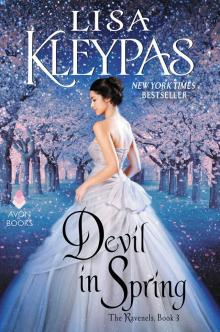 Devil in Spring
Devil in Spring Sugar Daddy
Sugar Daddy Devil in Winter
Devil in Winter Dreaming of You
Dreaming of You Christmas Eve at Friday Harbor
Christmas Eve at Friday Harbor Love, Come to Me
Love, Come to Me Only With Your Love
Only With Your Love Suddenly You
Suddenly You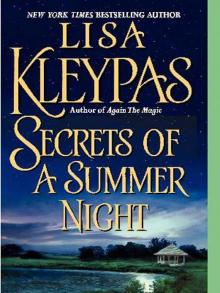 Secrets of a Summer Night
Secrets of a Summer Night Cold-Hearted Rake
Cold-Hearted Rake Where's My Hero?
Where's My Hero? Gifts of Love
Gifts of Love Married by Morning
Married by Morning Then Came You
Then Came You Wish List
Wish List Where Dreams Begin
Where Dreams Begin A Historical Christmas Present
A Historical Christmas Present Somewhere I'll Find You
Somewhere I'll Find You Scandal in Spring
Scandal in Spring Someone to Watch Over Me
Someone to Watch Over Me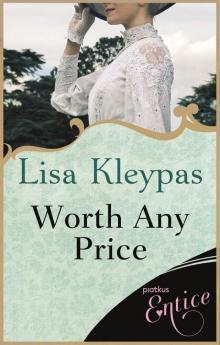 Worth Any Price
Worth Any Price Prince of Dreams
Prince of Dreams It Happened One Autumn
It Happened One Autumn Love in the Afternoon
Love in the Afternoon Devil's Daughter
Devil's Daughter A Wallflower Christmas
A Wallflower Christmas Tempt Me at Twilight
Tempt Me at Twilight Brown-Eyed Girl
Brown-Eyed Girl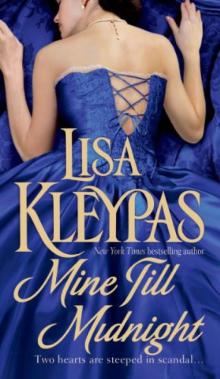 Mine Till Midnight
Mine Till Midnight Again the Magic
Again the Magic Lady Sophia's Lover
Lady Sophia's Lover Because You're Mine
Because You're Mine Midnight Angel
Midnight Angel Smooth-Talking Stranger
Smooth-Talking Stranger Blue-Eyed Devil
Blue-Eyed Devil Hello Stranger
Hello Stranger Dream Lake
Dream Lake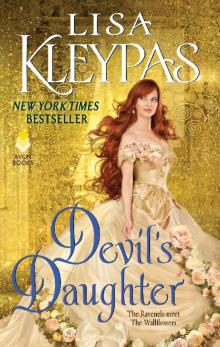 Devil's Daughter: The Ravenels Meet the Wallflowers
Devil's Daughter: The Ravenels Meet the Wallflowers A Christmas to Remember
A Christmas to Remember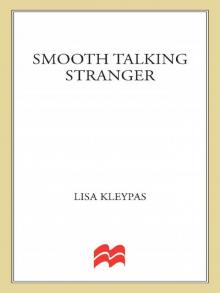 Smooth Talking Stranger
Smooth Talking Stranger Crystal Cove
Crystal Cove Marrying Winterborne
Marrying Winterborne Stranger in My Arms
Stranger in My Arms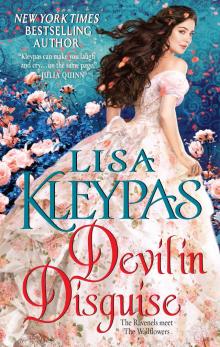 Devil in Disguise
Devil in Disguise Worth Any Price bsr-3
Worth Any Price bsr-3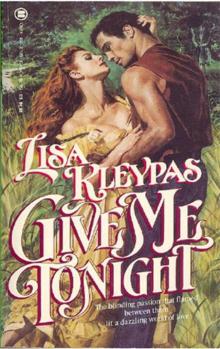 Give Me Tonight
Give Me Tonight Rainshadow Road fh-2
Rainshadow Road fh-2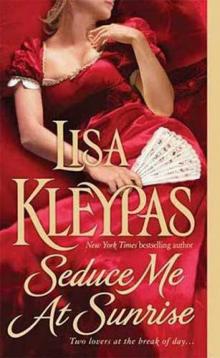 Seduce Me At Sunrise
Seduce Me At Sunrise I Will
I Will Someone to Watch Over Me bsr-1
Someone to Watch Over Me bsr-1 Lady Sophias Lover bsr-2
Lady Sophias Lover bsr-2 A Hathaway Wedding
A Hathaway Wedding A Hathaway Wedding (Hathaways Bk2.5)
A Hathaway Wedding (Hathaways Bk2.5) Worth Any Price - Bow Street 3
Worth Any Price - Bow Street 3 Christmas with Holly
Christmas with Holly